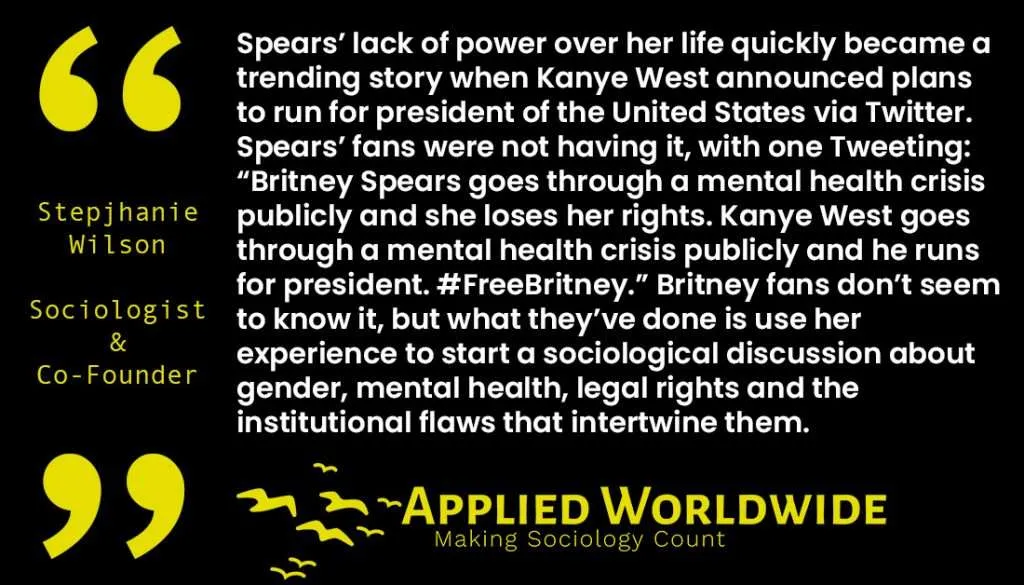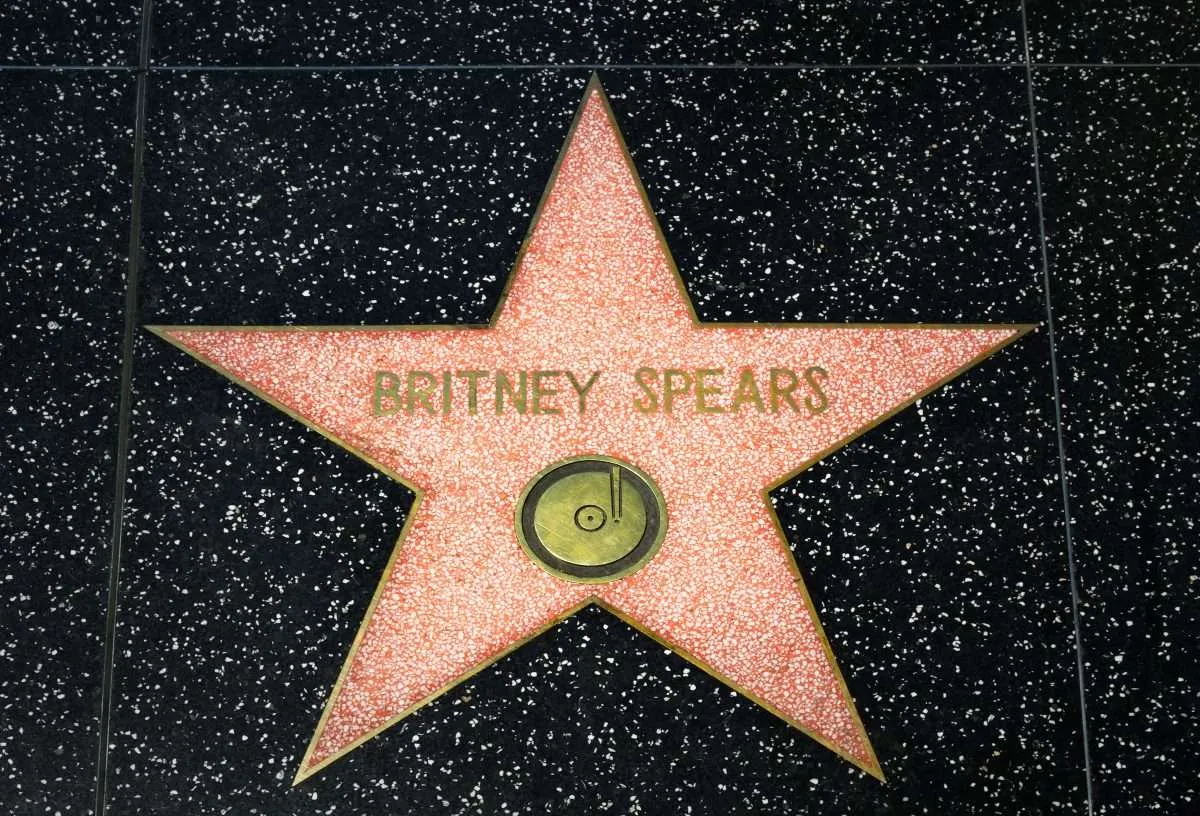Britney Spears has been the focus of the public’s eye across the U.S. and globe for decades—and for reasons easy to understand even prior to the #FreeBritney movement.
Her very public mental health struggles in 2007 caught the attention of the media from left and right; evidence-based and conspiracy-driven. Take, for example, the conspiracy theory that Spears, and other Hollywood stars, are the product of mind-control tactics discovered during MK-Ultra, a top-secret government CIA program that—shocker—disproportionately targeted the most vulnerable members of society. Well, behind every great conspiracy theory—like its close relatives myths, legends, and folklore—there is usually “a nugget of truth at the core.”
In the case of conspiracy theories around Spears being a pop star puppet at the mercy of Hollywood, that little nugget has recently moved to center stage, resulting in a sociological narrative that tells a much larger story about institutional flaws and inequality.
The Beginning of the #FreeBritney Movement
In June of 2020, news began circulating about the conservatorship Spears’ father, Jamie, successfully petitioned for after her second hospitalization in 2007. Upon further investigation, it quickly became clear that although the decision-making power Jamie has over Spears seems like new information based on the urgency of those posting to #FreeBritney on social media, it was in fact made public when the conservatorship was first granted back in 2008.
What makes the news shocking now—over a decade later—is that Spears’ father still remains her legal conservator, granting him power over nearly every decision she makes. Sources speculate that Spears hasn’t legally controlled her financial or personal decisions in twelve years, all due to her public struggles with mental health that lead to her father’s legal guardianship over her.
Spears’ lack of power over her life quickly became a trending story when Kanye West announced plans to run for president of the United States via Twitter. Spears’ fans were not having it, with one Tweeting: “Britney Spears goes through a mental health crisis publicly and she loses her rights. Kanye West goes through a mental health crisis publicly and he runs for president. #FreeBritney.” Britney fans don’t seem to know it, but what they’ve done is use her experience to start a sociological discussion about gender, mental health, legal rights and the institutional flaws that intertwine them.

Gender, Mental Health, and Legal Rights
The history of hysteria as a medical diagnosis in the U.S. is surprisingly useful in understanding Spears’ modern-day experience. A medical condition legitimized by the Diagnostic and Statistical Manual of Mental Disorders until 1980, hysteria is known as a patriarchal tool that was used as “a means of dampening the educational ambitions of white women and dehumanizing people of color, all under the elaborate drapery of scientific rigor and professional authority.” In other words, sociologists see hysteria—and similar tools developed throughout history—as a way of maintaining gendered and racialized power dynamics in interpersonal relationships and broader society.
Although hysteria is no longer recognized as a legitimate mental illness, present-day medicalization of mental health can work in similar ways as a means of social control. Britney Spears’ story is a perfect example—and in contrast to Kanye West’s we can see how this social process is gendered. Regardless of the validity of her struggles with mental health, the way in which her father used those struggles to legitimize his control over her life very explicitly exposes this narrative of medicalization as a form social control. Her deviant behavior was medicalized and placed under the umbrella of mental health issues. That medicalization then allowed her father to legally take control of her finances and personal decisions.
So, why is it—as one Spears’ fan so thoughtfully asked—that Kanye was allowed to publicly showcase his deviant behaviors and attitudes, have them medicalized by a variety of our social institutions, and not have that medicalization infringe upon his rights as an autonomous adult?
Although we cannot be sure without proper research, the signs sure do point towards gender. With the history of hospitalizing women against their will by way of medicalizing their deviant behavior and calling it hysteria, it is not surprising that these two celebrities have seen drastically different results from their psychiatric holds. Whether or not Kanye West runs for president, his ability to make that claim is something Spears’ cannot currently make the independent choice to do.
The Sociology of the #FreeBritney Movement
To see the connection between history and personal experience is to use, what C. Wright Mills called, one’s sociological imagination. As a sociologist, I see this trending story designated under the #FreeBritney movement as an opportunity to take a good look at where, when, and how our mental health institutions meet our legal institutions. Not only can we use Spears’ case to see how clearly these institutions are connected, but we can also use it to examine the history that’s embedded within that connection and how it may be highly gendered in a way that oppresses women’s legal rights.
For years people threw around the idea that Britney Spears’ was enrolled in some top-secret Hollywood mind-control program that completely obliterated her control over her life. While the conspiracy may be just that—a conspiracy—the nugget of truth at its core exposes even more than the ugly truth by shining light on the larger social phenomena that allow things like what’s happening to Spears to persist.








